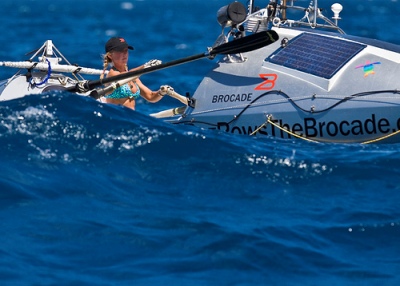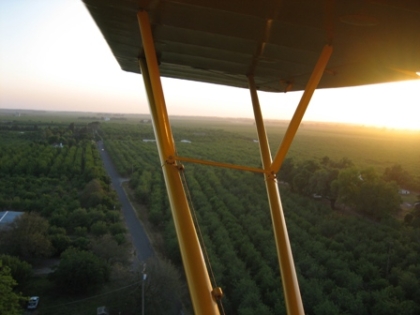I spent the last few days hiking and kayaking in the White Mountains of New Hampshire, far away from cell phone or Internet coverage. And it reminded me, once again, how important disconnecting from everything is every once in a while. I shouldn’t really need reminding of that fact, at this point in my life. But it’s easy to forget, in the habit of connected life, how much slower life passes, how much more musical and peaceful the world appears, and how restorative a space of time away from human-made noise can be.
Humans are social herd animals, and our community connections have always been our salvation. But social and productive work contacts and tasks also require energy. It may not seem that way, when we’re “in the fray.” But in our overly-connected, instant-response world, solitude and silence have become, if not endangered species, then at least far more rare and precious commodities. Take away the ringing phone and the electronic devices and messages and requests for responses, and it becomes far easier to focus just on the moment you’re in; the current in the river, the sound of the birch trees swaying in the breeze, the thunder of the waterfall just around the corner.
I don’t have scientific data to back this up (although I may now go looking for it!) but I suspect, reflecting on the past few days, that while we developed the ability to multi-task to help our survival (or at least the survival of our species’ young), humans are at their happiest and most peaceful when we can focus on one task at a time. There is a wholeness, an immersion, and a sense of completion that comes from that focus that I never feel when juggling four tasks or demands in the air at once.

Which may at least explain part of the motivation of Roz Savage, a woman who is currently rowing across the Pacific, solo. Not sailing—ROWING. I’ve kept track of her progress, over the summer, just because I can’t imagine wanting to do such a thing myself. And, truth to tell, I still can’t. But it occurs to me that in her rowboat, with a single task of rowing, day after day, she has the luxury of focusing entirely on where she is (her blog postings aside, of course). The ocean. The wind. The strokes. Eat. Sleep. Clean. Row. Whatever the downsides of the adventure may be—and I’m sure the list is longer than even she could easily list—she isn’t crazed. She has time to think. To be. To do one thing at a time.
You can check out her progress, and read her blog posts, at www.rozsavage.com. I’m not sure how rowing across the ocean enhances environmental awareness. But there are many interesting insights and lessons that anyone can draw from her adventure. She talks about how tough it is to keep perspective on days when the going is rough; about how comforting it was to her to discover that there was another woman rowing across the Pacific far to the north. As I’ve often said, just knowing someone else understands what you’re going through, and is out there, somewhere, sharing the same highs, lows, sky and water … makes the world a lot less lonely. And discovering an unexpected kindred spirit is one of the most heart-warming, precious and joyful gifts a traveler—on land, sea, or in life—can ask for or receive.
In the midst of community, we remember the need for solitude. In the midst of a solitary adventure, we remember our need for community. It sounds almost ironic. But I think somewhere in between lies something precious known as balance.
Photo by Phil Uhl. Used with permission.






I’m with you on this one. I need the solitude to feed then sort my head. Too much too fast reduces me to a reactive mess. I purposefully try to develop my thoughts when alone so that I can give true (to me) responses in times of stress.
The only problem is the time I spend doing it sometimes seems stolen from my family. I once spent 15 years trying to arrange sponsorship for a stab at the BOC “Around Alone” sailing challenge. As I got closer people would ask why I would want to be alone for that long. To which my wife replied ” Oh, that will be the easiest part for him.” That might explain the next 10 years of singlehood. Happily married once more, I’m conscious of the need to be alone AND the trade-off it represents.
I suspect the desire for solitude is just one the of many, complex motivating factors that compel people to undertake things like rowing across the Pacific. I thought Walter Lippman captured this thought well in his eulogy of Amelia Earhardt:
“I cannot quite remember whether Miss Earhart undertook her flight with some practical purpose in mind, say, to demonstrate something or other about aviation which will make it a little easier for commercial passengers to move more quickly around the world. There are those who seem to think that an enterprise like hers must have some such justification, that without it there was no good reason for taking such grave risks.
But in truth Miss Earhart needs no such justification. The world is a better place to live in because it contains human beings who will give up ease and security and stake their own lives in order to do what they themselves think worth doing. They help to offset the much larger number who are ready to sacrifice the ease and the security and the very lives of others in order to do what they want done. No end of synthetic heroes strut the stage, great bold men in bulletproof vests surrounded by squads of armed guards, demonstrating their courage by terrorizing the weak and the defenseless. It is somehow reassuring to think that there are also men and women who take the risks themselves, who pit themselves not against their fellow beings but against the immensity and the violence of the natural world, who are brave without cruelty to others and impassioned with an idea that dignifies all who contemplate it.
The best things of mankind are as useless as Amelia Earhart’s adventure. They are the things that are undertaken not for some definite, measurable result, but because someone, not counting the costs or calculating the consequences, is moved by curiosity, the love of excellence, a point of honor, the compulsion to invent or to make or to understand. In such persons mankind overcomes the inertia which would keep it earthbound forever in its habitual ways. They have in them the free and useless energy with which alone men surpass themselves.
Such energy cannot be planned and managed and made purposeful, or weighed by the standards of utility or judged by its social consequences. It is wild and it is free. But all the heroes, the saints and the seers, the explorers and the creators partake of it. They do not know what they discover. They do not know where their impulse is taking them. They can give no account in advance of where they are going or explain completely where they have been. They have been possessed for a time with an extraordinary passion which is unintelligible in ordinary terms.
No preconceived theory fits them. No material purpose actuates them. They do the useless, brave, noble, the divinely foolish and the very wisest things that are done by man. And what they prove to themselves and to others is that man is no mere creature of his habits, no mere automaton in his routine, no mere cog in the collective machine, but that in the dust of which he is made there is also fire, lighted now and then by great winds from the sky.”